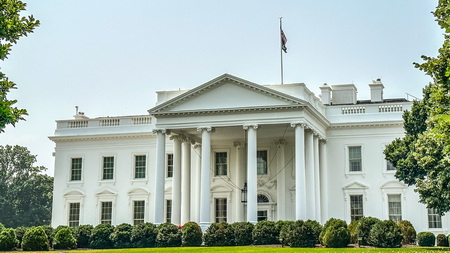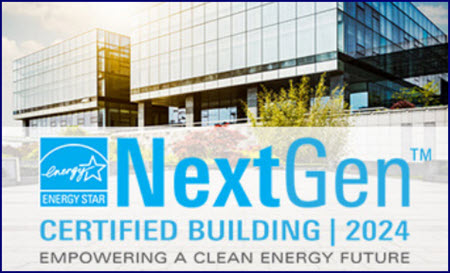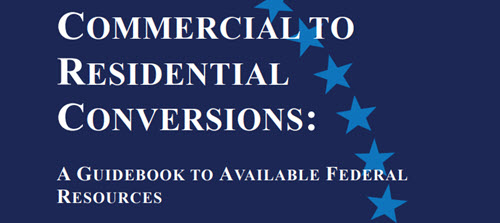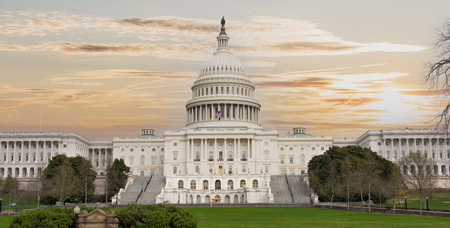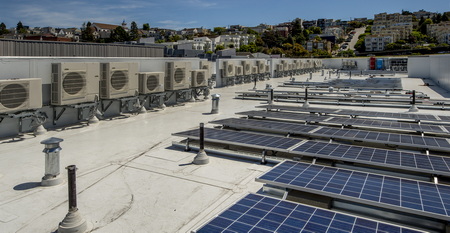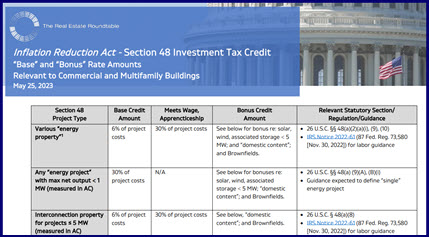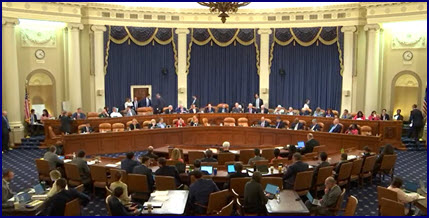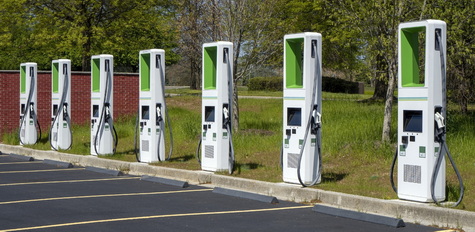
This week, the Treasury Department and IRS released proposed rules for the expanded investment tax credit (Section 30C) for electric vehicle (EV) chargers installed in low-income and rural areas. The credit, enhanced by the Inflation Reduction Act (IRA), is poised to encourage private-sector investment in EV charging infrastructure. (PolitcoPro, Sept. 18)
Proposal Details
- The proposed rules should help accelerate the buildout of a reliable and convenient charging network. In 2021, President Biden set forth an ambitious plan for a nationwide network of public and private EV charging stations.
- The 30C credit covers as much as 30% of qualifying costs, up to $100,000 per charger for businesses and $1,000 for individuals. (Bloomberg, Sept. 19)
- In particular, the rules related to qualifying census tracts should encourage the construction of charging stations at industrial properties, commercial parks, warehouses and logistics facilities, and port-adjacent properties that are unpopulated themselves but in the vicinity of denser, population centers.
- Treasury’s proposed rule broadly defines “low-income” and “rural” areas, making nearly two-thirds of the U.S. population eligible for the credit. (AP, Sept. 18)
- In addition, one significant change that the IRA made to section 30C, is that the credit applies per charging port, not per location, boosting savings for developers by reducing the cost of building multiple ports at one station.
- The Roundtable submitted comments in Dec. 2022 to Treasury and IRS on the Section 30C tax credit, urging the IRS to issue guidance to clarify the components of EV charging property that qualify for the credit, the geographic areas that are 30C-eligible, and depreciation matters. (Roundtable Weekly, Dec. 2022)
- The new proposed rules reflect feedback from The Roundtable on many of the key issues raised, including important clarifications on component eligibility.
- While White House advisor John Podesta emphasized that the rule will help expand EV access across all communities, Sen. Joe Manchin (I-W.Va.) criticized the broad definition of “non-urban,” claiming it overlooks rural areas. (The Hill, Sept. 18)
What’s Next

- With the tax policy debate at the forefront in Washington, House Speaker Mike Johnson made remarks this week regarding the future of the IRA. He pledged to cut “wasteful” spending while preserving some clean energy tax incentives. He emphasized using a “scalpel” rather than eliminating all provisions, acknowledging that certain credits benefit economic growth.
- In August, 18 Republicans wrote to Speaker Johnson expressing concern that “[p]rematurely repealing energy tax credits, particularly those which were used to justify investments that already broke ground, would undermine private investments and stop development that is already ongoing.” (The Hill, Sept. 18)
- Treasury will accept public comments on the proposed regulations through Nov. 18.
The Roundtable’s Tax Policy Advisory Committee (TPAC) and Sustainability Policy Advisory Committee (SPAC) are reviewing the proposed rulemaking in its entirety and may provide additional written comments to the regulators.
